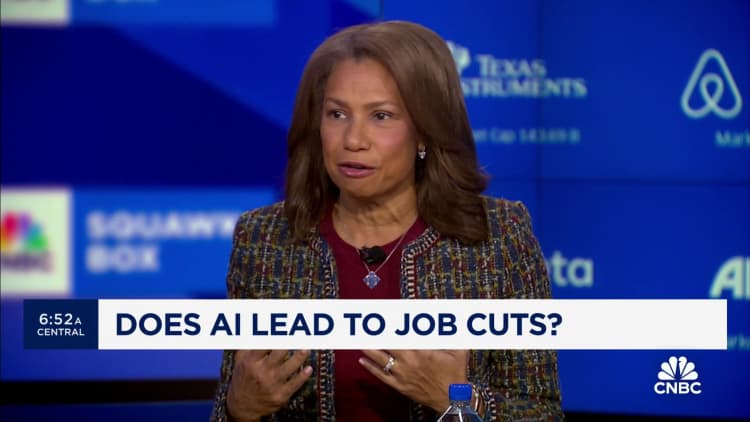Fotostorm | E+ | Getty Images
“Ghosting” isn’t just a dating phenomenon: It has grown more common at the workplace, too. And that unreliable behavior risks reputational harm to employers and job seekers, said career experts.
The concept of ghosting — abruptly and unexpectedly ceasing communication with someone (i.e., disappearing) — arose around the mid-2010s as social media and dating apps gained prominence. Merriam-Webster added this new-age definition of “ghost” to the dictionary in 2017.
The practice has become common among both job applicants and employers during the hiring process.
More from Personal Finance:
How to get by without a paycheck after a job loss
Amid mass layoffs, it’s best to take a new approach to job searches
Workers are sour on the job market — but it may not be warranted
About 78% of job seekers said they’d ghosted a prospective employer, according to a December report from the job site Indeed, based on a poll conducted in spring 2023. That’s up from the prior year, when 68% said they’d gone AWOL during the hiring process sometime over their career.
Roughly 62% of job seekers said they plan to ghost during future job searches, up from 56% in 2022 and 37% in 2019, Indeed found.
But it’s not just applicants who disappear: 40% of job seekers said an employer had ghosted them after a second- or third-round interview, up from 30% in 2022.
The data suggests ghosting is “still trending upward” and isn’t a “passing fad,” according to the Indeed report.
Why job ghosting is becoming more common
It’s not as if ghosting is a new phenomenon. There have always been job seekers and employers who’ve displayed lackluster communication during hiring, said Jill Eubank, senior vice president of business professionals at Randstad, a recruitment firm.
Its prevalence in recent years is likely attributable to a hot job market heading into the Covid-19 pandemic and then exiting it, she said.
Demand for labor surged in early 2021 as the U.S. economy reopened from its pandemic-related doldrums. The unemployment rate has hovered near historic lows for about two years, and layoffs for nearly three years. Job openings — a proxy for businesses’ need for workers — hit historic highs in the pandemic era; so did quits, a barometer of workers’ ability or willingness to get jobs elsewhere.

While the job market has gradually cooled, it’s still strong, Eubank said.
Job candidates likely felt they had abundant choice and a high likelihood of success, and ghosting swelled as a result, she said.
“They feel that they have options: ‘I don’t have to communicate because I can just go over here [for a job], or I have this other opportunity,'” Eubank said.
Why ghosting has become a feedback loop
Maskot | Maskot | Getty Images
About 1 in 6 millennial and Generation Z workers have ghosted a prospective employer during the interview process, primarily because they no longer wanted the job, got another job offer or had a bad interview experience, according to a 2023 poll by the Thriving Center of Psychology, a mental health platform.
Two-thirds — 66% — of workers have “ghosted” employers by accepting a job offer and then retracting it, or disappearing, before their start date, according to a 2019 poll by Randstad.
As a coach, I’d never recommend that a job seeker ghost an employer.
Clint Carrens
career strategist at Indeed
Additionally, 35% of workers said they’d been ghosted by employers during the interview process, according to the Thriving Center of Psychology.
The problem has morphed into a feedback loop, said Clint Carrens, a career strategist at Indeed’s Job Search Academy.
“You’ve got job seekers feeling employers are getting worse at ghosting,” Carrens said. “Many are taking the approach that if employers consider it normal etiquette, then they will also engage in that behavior. It’s almost a circular problem.”
However, ghosting carries risks for both parties via potential reputational damage, experts said.
“As a coach, I’d never recommend that a job seeker ghost an employer,” Carrens said.
Those who do may be “red flagged” by the employer and lose access to a future job opportunity, for example, he said.
Employers may feel ghosting gets them a short-term win by cutting time during the hiring process, but it also hurts their brands in the long run, especially if job seekers speak out about their negative experience online, Carrens added.

